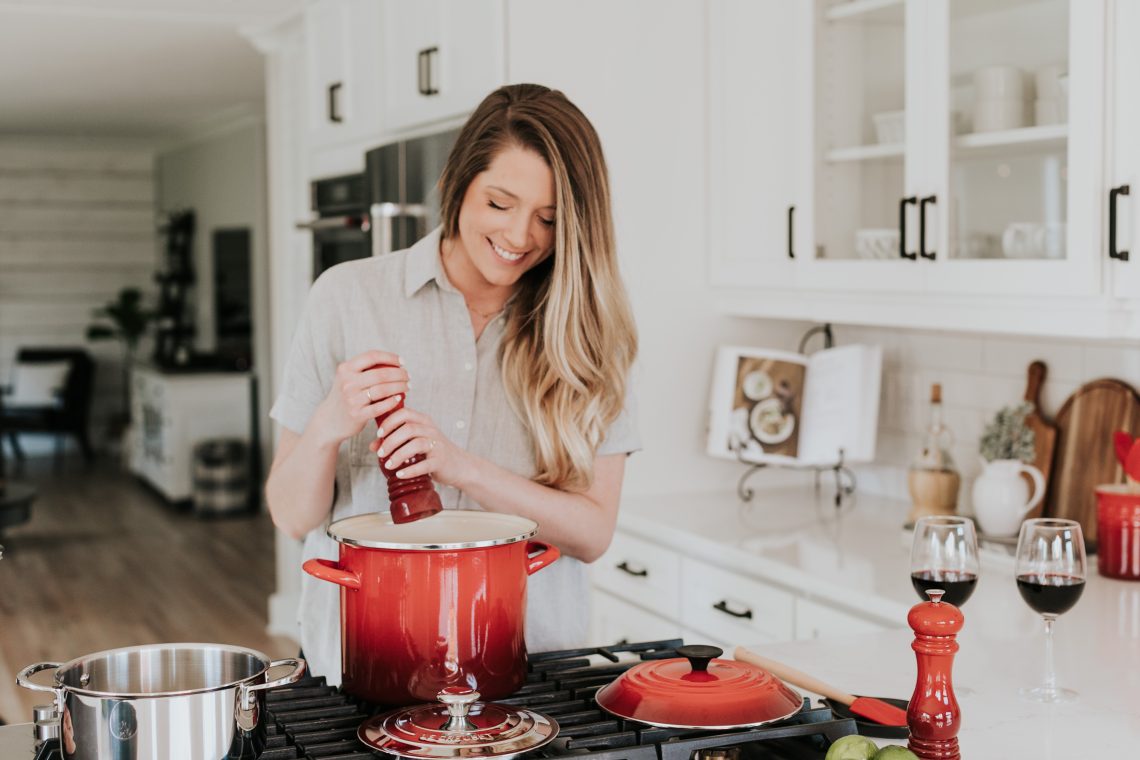A Better Cooking Experience
Today we want to share 4 tips for a better cooking experience. Learning to cook comes with many benefits. However, it can take a while to feel confident in your abilities in the kitchen. At the same time, you don’t need advanced cooking skills to prepare healthy and delicious meals for you and your family. You do need to spend a significant amount of time in the kitchen, trying recipes and experimenting freely. Having access to a kitchen equipped with all the essentials is vital.
Here are four tips to help you have a rewarding and productive time in the kitchen.
1. Make Sure You Have the Right Tools and Utensils
A big part of the cooking process consists of basic, repetitive tasks like washing and chopping ingredients. Without reliable tools and utensils, these tasks can be very time-consuming.
There’s nothing more frustrating than cutting meat with a dull or flimsy knife and spending thus minutes on a task that should have taken seconds. High-quality knives such as sets of Damascus kitchen knives are essential for a good cooking experience. Besides good knives, you also need a whetstone to sharpen them regularly. Even the best knives lose their sharpness in time. Having a sharpening tool in your kitchen is very convenient.
Other tools and utensils that can prove essential in the kitchen are tongs, spatulas, and different-sized pots and pans. A blender is also a helpful tool.
2. Organize Your Kitchen
Photo by Heather McKean on Unsplash
Realizing halfway through a recipe that you don’t have all the necessary ingredients can be frustrating. So is having to get everything out of the cupboards to find an ingredient for your recipe. To a degree, your cooking experience depends on how well-organized your kitchen is. How easy it is to tell what ingredients you have available? Are your spices easy to access? Do you have a large enough area to place the cutting board?
Organizing your fridge, pantry, and all other areas in the kitchen is essential for a good cooking experience. Every important item should be easy to reach without you having to move other things around.
3. Experiment With Spices and Herbs
One thing that can transform your experience in the kitchen is gaining the courage to play with flavor. Experimenting with spices and fresh herbs can help you create memorable dishes. The safe way to do this is to find recipes that introduce you to new spices and herbs or new combinations of flavors. A riskier but more rewarding way to do this is to adapt recipes to your taste by adding additional flavors or increasing the intensity of each flavor.
4. Don’t Be Afraid to Make Mistakes
The last tip that will help you have a better experience in the kitchen is to allow yourself to make mistakes. Don’t put too much pressure on yourself. If you worry about wasting ingredients or disappointing your family with a mediocre meal, learn to let go of these worries and see everything that happens in the kitchen as a valuable lesson. Accepting the risk of making mistakes is one of the most important things to learn as a beginner chef.
Read more fashion articles at ClichéMag.com
Images provided by Flickr, Unsplash, Pexels, Pixabay & Creative Commons




